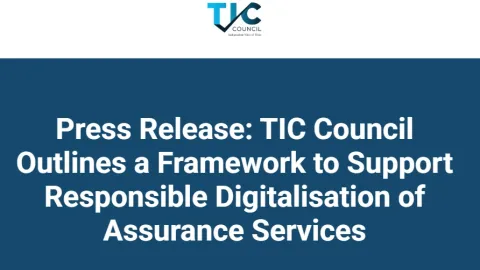News European Union
Please note that you have to be a registered member with paid membership in order to see full articles.
Become a MemberSelected News

European Accreditation Forms Task Force To Support Carbon Border Adjustment Mechanism Verification
European co-operation for Accreditation (EA) has established the EA Task Force Group on the EU Carbon Border Adjustment Mechanism (TFG EU CBAM) to support consistent accreditation of verifiers under the new carbon pricing system for certain imports into the European Union (EU).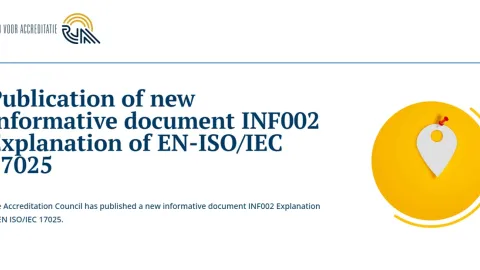
RvA Publishes INF002 Guidance On ISO 17025 Interpretation
The Dutch Accreditation Council (RvA) has published a new informative document, INF002, explaining how it interprets and applies EN ISO/IEC 17025,
Market Surveillance, Child Protection And Transport Emissions In New UNE Magazine
The February 2026 issue of UNE Magazine centers on the Fifth Annual Report of the Market Surveillance Observatory,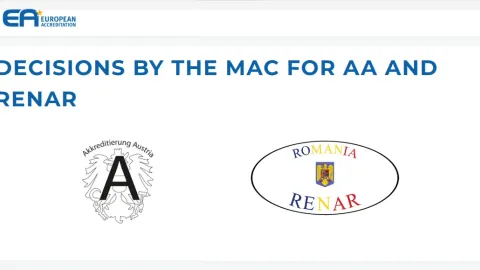
Austrian And Romanian Accreditation Bodies Retain EA MLA Status
The European co-operation for Accreditation (EA) has confirmed that Accreditation Austria (AA) and the Romanian Accreditation Association (RENAR) will remain signatories to the EA Multilateral Agreement (EA MLA) following their latest peer evaluations.
Cybersecurity In Healthcare And AI Standards Headline February Issue Of PKN News
The February 2026 issue of PKN News (Wiadomości PKN), published by the Polish Committee for Standardization (PKN), focuses on cybersecurity in healthcare and international standards for artificial intelligence.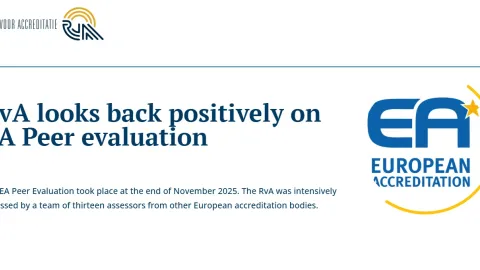
RvA Undergoes EA Peer Evaluation To Confirm MLA Status Under ISO 17011
The Dutch Accreditation Council (RvA) has completed iits 2025 peer evaluation by the European co-operation for Accreditation (EA), a review that determines whether it can remain a signatory to the EA Multilateral Agreement.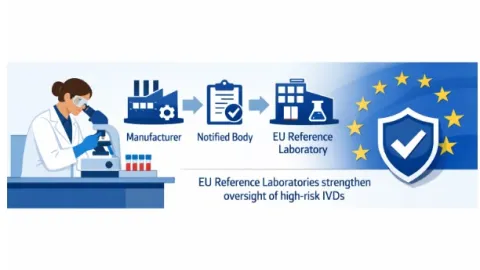
EU Expands Laboratory Oversight for Highest Risk In Vitro Diagnostic Devices
The European Union (EU) has expanded oversight of Class D in vitro diagnostic medical devices under Regulation (EU) 2017/746, known as the In Vitro Diagnostic Regulation (IVDR).
Danish Standards Launches Guide To Prepare Companies For Digital Product Passport
Danish Standards (DS) has launched a new guide to help companies prepare for upcoming EU requirements related to the Digital Product Passport (DPP).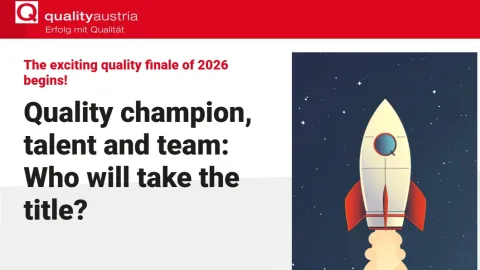
Quality Austria and ÖVQ Announce Finalists for DACH Quality Awards 2026
Quality Austria and the Austrian Association for Quality Assurance (ÖVQ) have announced the finalists for the 2026 Quality Awards, recognizing leading professionals, young talents, and teams across the DACH region (Germany, Austria, and Switzerland).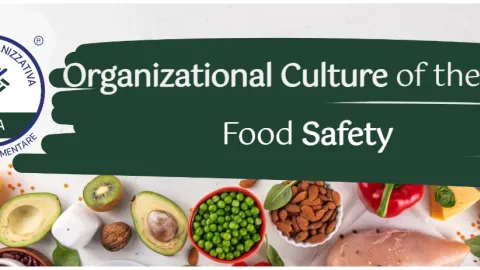
COSA Method Certification Debuts with CSQA as First Authorized Body
A new COSA Method certification has been introduced to measure and strengthen food safety culture in agri-food companies.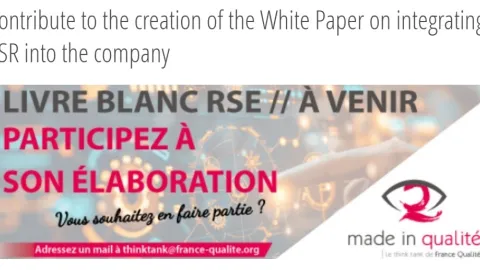
France Qualité Launches Project Group to Develop White Paper on Integrated CSR
France Qualité, a French association that promotes quality management and organizational performance,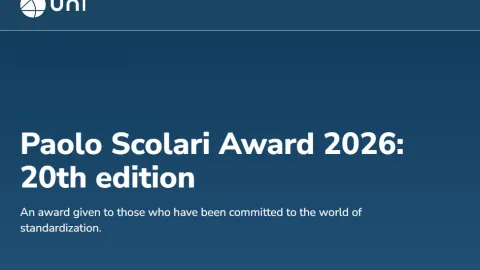
UNI Opens 20th Edition of Paolo Scolari Award with February 26 Deadline
The Italian National Standardization Body (UNI) has launched the 20th edition of the Paolo Scolari Award (Premio Paolo Scolari),Global News
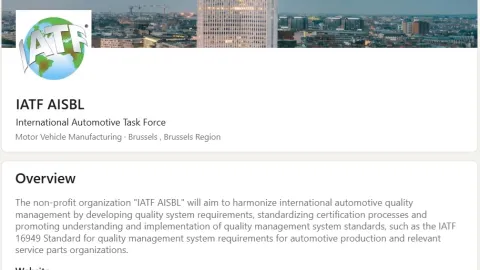
IATF Establishes Legal Entity, Ending Ad Hoc Structure
The International Automotive Task Force (IATF) has established a new legal entity, IATF AISBL, marking a shift from its previous structure as an ad hoc group of automotive manufacturers and their national industry associations.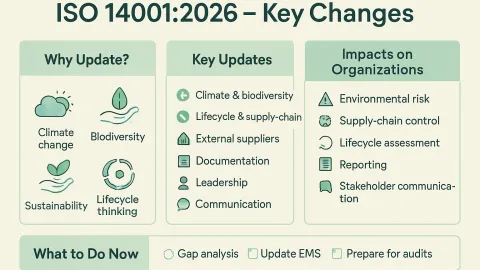
ISO 14001 Final Draft Approved For Publication
The Final Draft International Standard (FDIS) of ISO 14001 has been approved, paving the way for publication in mid April.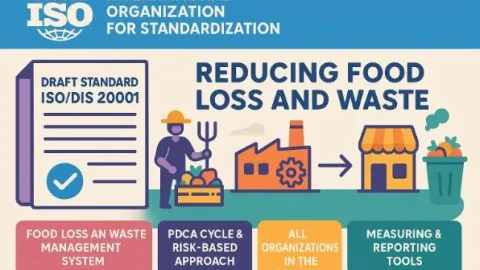
Have Your Say On Food Waste Management: ISO 20001 Survey
Harper Adams University is inviting professionals across the food chain to take part in a survey on ISO 20001, a proposed international management system standard designed to help organisations systematically reduce food loss and waste.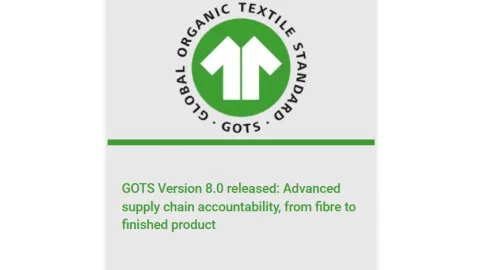
GOTS Version 8.0 Released With Expanded Due Diligence And Environmental Controls
Global Standard has released Version 8.0 of the Global Organic Textile Standard (GOTS),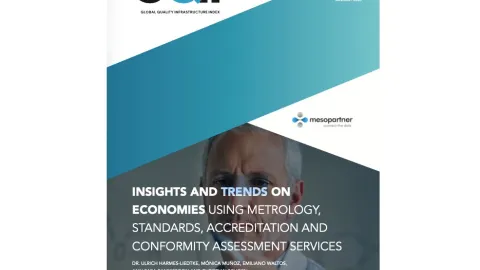
Global Quality Infrastructure Index 2025 Report Ranks Germany First as Certification and Accreditation Expand
The 2025 edition of the Global Quality Infrastructure Index (GQII) has been released, presenting updated rankings and new data on the development of national quality infrastructure systems.
BRCGS Announces 2026 EMEA Award Winners At Connect Europe
BRCGS has announced its 2026 award winners during BRCGS Connect Europe in London, recognizing individuals and organizations serving the Europe, Middle East and Africa (EMEA) region and adjacent markets.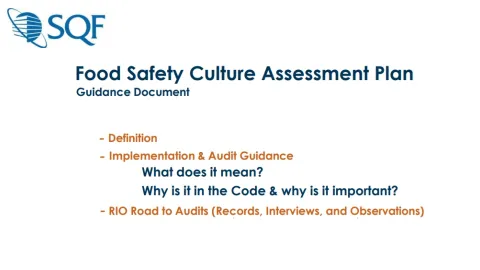
Food Safety Culture Becomes a Formal Certification Requirement Under SQF Edition 10
When SQF Edition 10 launches in March, food safety culture will be required and auditable as part of certification.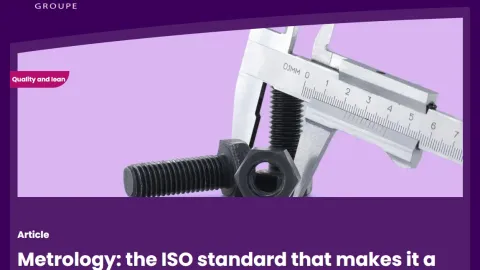
Revised ISO 10012 Reframes Metrology As A Management System
The revised ISO 10012 standard has been published, positioning metrology as an integral part of quality management systems rather than a standalone technical activity.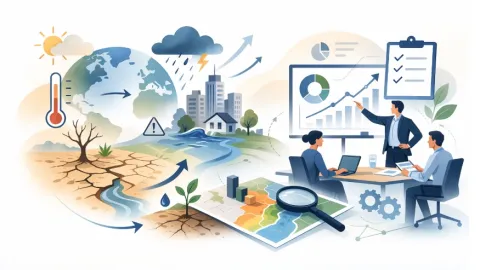
ISO 14091 Under Review To Ensure It Meets Climate Adaptation Needs
The International Organization for Standardization (ISO) is conducting a systematic review of ISO 14091 to determine whether it still meets the needs of organizations addressing climate change risks.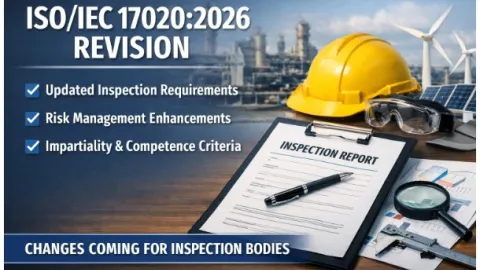
Six Changes Reshape ISO 17020 Requirements For Inspection Bodies
The 2026 revision of ISO/IEC 17020 introduces structural and conceptual updates that will affect how inspection bodies operate, particularly in areas such as independence, impartiality, complaints handling, and management systems.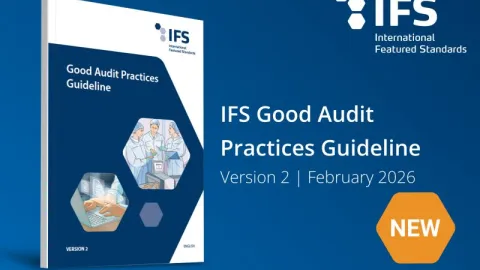
IFS Strengthens Audit Consistency With Good Audit Practices Guideline Version 2
IFS has released Good Audit Practices Guideline Version 2 to support auditors in delivering more consistent, high quality and effective audits across all IFS Standards.